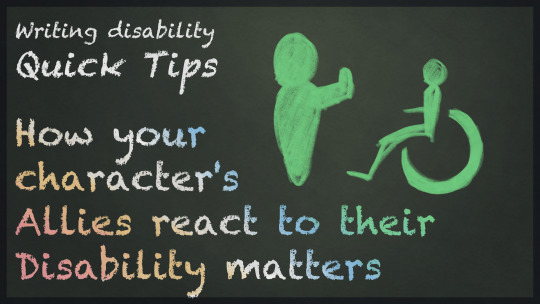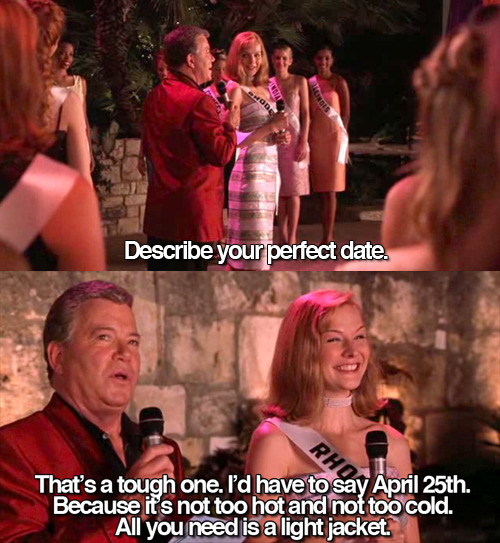Text
Something I do really love about The Tumblr Experience™️ is that you get everything. The whole blog, in order, not by popularity or (usually) tailored to fit an audience.
I followed this person for one thing, but this is a really gorgeous picture of a bird. A gifset of a movie I never would have seen. A poem about brothers or frogs or ribbon or love.
It's odd but it's meditative, almost. I think it's part of why mutuals, especially ones we don't really talk to, are such a specific phenomenon. I've never spoken to you, you stopped talking about the thing I followed you for forever ago, I don't even remember what it was, but I like seeing you there, still reblogging gifsets of 1990s cult classics and parasocially blogging about Bob Dylan.
10K notes
·
View notes
Text
Just checking....
We all pronounce Miette like My-TAY in our heads, right?
#neither#i think of it like maddie but with Ts instead of Ds#mah-tee#which i know is probably also wrong
26K notes
·
View notes
Text
The Untrustworthy Fake: Disability Tropes

[ID: A screenshot of Willy Wonka from Charlie and the Chocolate Factory as he limps towards a crowd using a cane. In the picture, he has a brown top hat in his hand, and he's wearing a suit with a purple jacket, multicoloured bow tie and cream coloured pants. Beside him is text that reads: "Disability Tropes, The untrustworthy Fake" /End ID]
Tell me if this sounds familiar: A new character is introduced into a story with some kind of disability - usually visible but not always. Maybe they're a seemingly harmless person in a wheelchair, maybe they're a one-legged beggar on the street, or maybe they're an elderly person with a cane and a slow, heavy limp. But at some point, it's revealed it's all a ruse! The old man with a cane "falls" forward and does a flawless summersault before energetically springing back up to his feet, the wheelchair user gets to their feet as soon as they think the other character's backs are turned, the one legged beggar's crutch is knocked out of his hand, only to have his other leg pop out of his loose-fitting tunic to catch him.
All of these are real examples. Maya and The Three introduces one of it's main protagonists, Ricco, by having him pretend to be missing a leg in order to con people (something that works on the protagonist, at least at first), Buffy The Vampire Slayer had the character Spike, pretend to be in a wheelchair, until the other characters leave and he gets up, revealing it's all a ruse and Charlie and the Chocolate Factory introduces Wonka by having him slowly limp out into the courtyard of the factory, only for his cane to get stuck, causing him to "fall" and jump back up, revealing that he's actually perfectly fine. Virtually every single major crime show in the past few decades has used this trope too, from CSI to The Mentalist, Castle, Law and Order and Monk all having at least one episode featuring it in some way. Even the kids media I grew up with isn't free from it; The Suite Life of Zack & Cody sees Zach faking being dyslexic after meeting someone who actually has the condition in the episode Smarter and Smarter and the SpongeBob SquarePants episode Krabs vs Plankton has Plankton fake needing a wheelchair (among other injuries) after falling in the Krusty Krab as a ploy to sue Mr Krabs and trick the court into giving him the Kraby Patty Formula.
No matter the genre or target audience though, one thing is consistent: this trope is used as a way to show someone is dishonest and not to be trusted. When the trope is used later in the story, it's often meant to be a big reveal, to shock the audience and make them mad that they've been duped, to show the characters and us what this person (usually a villain) is willing to stoop to. Revealing the ruse early on though is very often used to establish how sleazy or even how dangerous a character is and to tell the audience that they shouldn't trust them from the get go. Gene Wilde (The actor who first played Willy Wonka) even said in several interviews that this was his intent for Wonka's character. He even went so far as to tell the director of Charlie and the Chocolate Factory that he wouldn't do the film without that scene because of how strongly he felt this trope was needed to lay the foundations for Wonka's questionable intentions and motivations. His exact words are:
"...but I wouldn't have done the film if they didn't let me come out walking as a cripple and then getting my cane stuck into a cobble stone, doing a forward somersault and then bouncing up... the director said, well what do you want to do that for? and I said because from that point on, no one will know whether I'm telling the truth or lying."
There's... a lot of problems with this trope, but that quote encapsulates one of the biggest ones. whether intentionally or not, this trope ends up framing a lot of actual disabled people as deceitful, dishonest liars.
Now I can already hear you all typing, What?! Cy that's ridiculous! No one is saying real disabled people are untrustworthy or lying about their disabilities, just people who are faking!
but the thing is, the things often used in this trope as "evidence" of someone faking a disability are things real disabled people do.
A person standing up from their wheelchair or having scuff-marks on their shoes, like in the episode Miss Red from The Mentalist isn't a sign they're faking, a lot of wheelchair users can stand and even walk! They're called ambulatory wheelchair users, and they might use a wheelchair because they can't walk far, they might not feel safe walking on all terrains, they might have unstable joints that makes standing for too long risky, they might have a heart condition like POTS that has a bigger impact when they stand up or any number of other reasons. Also even non-ambulatory wheelchair users will still have scuff marks from things like transferring and bumping into things (rather hilariously, even TV Tropes calls this episode out as being "BS" in it's listing for this trope, which it refers to as Obfuscating Disability).
A blind beggar flinching or getting scared when you pull a gun on them isn't a sign they're faking their blindness like it is in Red Dead Redemption 2. Plenty of blind people can still see a little bit, it might only be a general sense of light and darkness, it might be exceptionally blurry or just the fuzzy outlines of shapes, or they might only be able to see something directly in front of them, all of which might still be enough to cue the person into what's happening in a situation like that. Even if it's not, the sound of you pulling your gun out or other people nearby freaking out and making noise probably would tip them off.
A person needing a cane or similar mobility aid sometimes, but being able to go without briefly or do even "big movements" like Wonka's rolling somersault, doesn't mean they don't need it at all. Just like with wheelchairs, there's a lot of disabilities that require canes and similar aids some days, and not others. Some disabilities even allow people those big, often straining movements on occasion, or allow them to move without the aid for short periods of time, but not for long. Some people's disability's might even require a mobility aid like a cane as a backup, just in case something goes wrong, but that still means you need to carry it around with you, and unless it can fold down, it's easier to just use it.
Disability is a spectrum, and a lot of disabilities vary in severity and what is required of the people who have them day to day. This trope, however, helps to perpetuate the idea that someone who does any of these things (and many others) is faking, which can actively make the lives of disabled people harder and can even put them in very real danger, physically, mentally and even financially.
Just ask any ambulatory wheelchair user about how many times they've been yelled at for using accommodations they need, like disabled toilets or parking spaces. How many times they've been accused of faking and even filmed without their consent because they stood up in public, even if it was to do something like get their wheelchair unstuck or as simple as them standing to briefly reach something on a high shelf. I've caught multiple people filming me before, so have my friends and family, and it's honestly scary not knowing where those images have ended up. This doesn't just impact the person either, a friend of mine was filmed while standing up to get his daughter (who was about 4 at the time) out of the car. He was lucky to have stumbled across the video a few days later on facebook and contacted the group admins where it was posted to get it taken down, but had he not stumbled across it by chance, pictures with his home address and his car's number plate, his child's face and his face all visible would have just been floating around, all because a woman saw him stand briefly to pick up his daughter.
Many people don't stop at just saying a nasty comment or taking a photo though, a lot of people, when they suspect people are faking, will get violent. I have many friends who have been pushed, slapped in the face, spat on or had their mobility devices kicked out from under them. I've even been in a few situations myself where, had I not had people with me, I think the situation would have turned violent.
There's even been cases where those photos and videos I've mentioned before have been used against real disabled people and they've been reported to their country's welfare system as committing disability fraud. While cases like this are usually resolved *relatively* quickly, in many parts of the world, their payment will be halted while the investigation is in process, meaning they may be without any income at all because of someone else's ignorance. If you're already struggling to make ends meet (which, if you're only living off one of those payments, you probably will be), a few weeks without pay can mean the difference between having a home and being on the streets.
Not to mention that when there's so many stories about people faking a disability in the media, especially when the character is doing it to get some kind of "advantage", such as getting accommodations or some kind of disability benefit, it perpetuates the idea that people are rorting the systems put in place to help disabled people. If this idea becomes prevalent enough, the people in charge start making it harder for the people who need them to access those systems, which more often than not results in disabled people not even being able to access the very systems that are supposed to be helping them. A very, very common example of this is in education where accommodations for things like learning disabilities require you to jump through a ridiculous number of hoops, especially at higher levels, only to have some teachers and professors refuse to adhere to the adaptations anyway because they're convinced the student (and usually disabled students as a whole) is faking.
Yes, the "untrustworthy faker" is a fictional trope, and yes, it does occasionally happen in real life, but not as often as media (including things like news outlets) would have you believe. However, when the media we consume is priming people to look for signs that a disabled person is faking, it has a real impact on real disabled people's lives. "Fake-claiming" is a massive problem for people in pretty much all parts of the disabled community, and it ranges from being just annoying (e.g. such as people spamming and fake-claiming blind people online with "if you were really blind, how do you see the screen" comments) to the more serious cases I mentioned above. It's for this reason a lot of folks in the disabled community ask that people leave this trope out of their works.
398 notes
·
View notes
Text
How your disabled character's allies react to their disability can make or break the representation in your story: Writing Disability Quick Tips

[ID: An image with “Writing Disability quick tips: How your character's allies react to their disability matters” written in chalk the colour of the disability pride flag, from left to right, red, yellow, white, blue and green. Beside the text are 2 poorly drawn people icons in green, one is standing with their hand up to the face of the other, who is in a wheelchair. /End ID]
Something I brought up in my big post about Toph Beifong was how the other characters reacted to Toph pointing out that things were not accessible to her and setting boundaries regarding her disability, which were ignored. I had more to say about it than I thought I did, as it turns out (when isn't that the case lol) but I feel like this is an important aspect of disability representation that is all too often over looked.
You can write the best, most accurate portrayal of a specific disability ever put to screen or page, but it won't mean much if all the other characters, specifically those we're supposed to like and empathise with, treat your character terribly for being disabled and having needs relating to said disability, especially if the story justifies their behaviour.
You see this most often with autistic characters and especially autistic-coded characters. The character in question will be given a bunch of autistic traits, most often traits relating to not understanding certain social dynamics or sarcasm, and when they get it wrong, the other characters we are supposed to like jump down their throat, tease them or outright abandon them.
Autism isn't the only disability that gets treated this way, but it is one of the more common ones that get this treatment. It doesn't matter if you do everything else right when creating an autistic character if the other "good guys" constantly call them annoying, get angry at them or laugh at them for the very traits that make them autistic, or for advocating for their needs.
Likewise, if you have a leg amputee character who is otherwise done well, but is constantly being criticised by their allies for needing to rest their legs or taking too long to get their prosthetics on, it undermines a lot of the other work you've done. Same goes for having a wheelchair user who is accused of being a bore or a stick in the mud because they point out the places their friends want to go to on a group holiday have no wheelchair access, or a deaf character who is accused of being entitled for wanting their family to learn to sign, or anything else.
This isn't to say you can never have moments like these in your stories, but its important to remember that a) people with the same disability as your character will be in your audience. If you spend a whole season of your TV show shaming your autistic character for real traits that real autistic people have, they're not exactly going to feel welcome and may not want to hang around. b) it's going to very, very heavily impact people's perceptions of your "heros" who do this, especially in they eyes of your audience members who share the character's disability or who have had similar experiences. This isn't like calling someone a mean name or being a bit of a dick when you're sleepy, it's going to take a lot to regain audience appeal for the offending character, and depending on exactly what they do and how frequently they do it, they may not even be able to come back from it at all. And finally, c) there should be a point to it outside of just shaming this character and saying the other guy is an asshole. Like I said before, you're character is criticising real people's real disabilities and the traits or problems that come with them, things that they often have no control over, it shouldn't be used as a cheap, quick way to establish a quirky enemies to lovers dynamic or show that one guy is kind of an ass before his redemption arc. If you really must have your characters do this, be mindful of when and how you use it.
489 notes
·
View notes
Text
I started using Head and Shoulders ten years ago for itchy scalp and dandruff, and then for ten years I have not had itchy scalp and dandruff, so I thought "why do I still buy shampoo to combat itchy scalp and dandruff when I do not have itchy scalp and dandruff," so I stopped buying the shampoo for itchy scalp and dandruff and can you guess I have now? Can you predict what currently afflicts me? It's alright if you can't because apparently I fuckin couldn't either
273K notes
·
View notes
Text
The devastating difference between how much time it takes to write something vs how fast people read it lol
21K notes
·
View notes
Text
hot artists don't gatekeep
I've been resource gathering for YEARS so now I am going to share my dragons hoard
Floorplanner. Design and furnish a house for you to use for having a consistent background in your comic or anything! Free, you need an account, easy to use, and you can save multiple houses.
Comparing Heights. Input the heights of characters to see what the different is between them. Great for keeping consistency. Free.
Magma. Draw online with friends in real time. Great for practice or hanging out. Free, paid plan available, account preferred.
Smithsonian Open Access. Loads of free images. Free.
SketchDaily. Lots of pose references, massive library, is set on a timer so you can practice quick figure drawing. Free.
SculptGL. A sculpting tool which I am yet to master, but you should be able to make whatever 3d object you like with it. free.
Pexels. Free stock images. And the search engine is actually pretty good at pulling up what you want.
Figurosity. Great pose references, diverse body types, lots of "how to draw" videos directly on the site, the models are 3d and you can rotate the angle, but you can't make custom poses or edit body proportions. Free, account option, paid plans available.
Line of Action. More drawing references, this one also has a focus on expressions, hands/feet, animals, landscapes. Free.
Animal Photo. You pose a 3d skull model and select an animal species, and they give you a bunch of photo references for that animal at that angle. Super handy. Free.
Height Weight Chart. You ever see an OC listed as having a certain weight but then they look Wildly different than the number suggests? Well here's a site to avoid that! It shows real people at different weights and heights to give you a better idea of what these abstract numbers all look like. Free to use.
177K notes
·
View notes
Text
At some point in your life, you were taught that being slightly annoying is an unforgivable sin. Maybe it was by your parents or a teacher or a friend or a bully or an older sibling. But someone taught you that being slightly annoying is a crime punishable by death.
You must unlearn this.
You must accept that all people will be annoying at some point or another in their lives, maybe all of their lives, and that this is okay. It is okay for strangers on the bus, it is okay for children in the grocery store, it is okay for people on social media, and it is okay for you.
If you ever want to truly love your fellow humans, if you ever want to truly love yourself, you must have forgiveness for being annoying.
15K notes
·
View notes
Text
"con artist" is maybe the profession with the biggest gap between How Cool They Are In Media and How Cool They Are In Real Life
24K notes
·
View notes
Text
Bind
Change a single letter and change the word game
I want to play a game with you all.
You have to make a new word by changing only one letter of the last word.
Dirt
120K notes
·
View notes
Text
to be honest it would make me a lot more comfortable if you guys would show a little concern about trump running for president again. Do not inbox me and say you don’t like joe biden omg i already know. but can we show a little concern. about donald trump. being the republican candidate for president. for the third election in a row.
15K notes
·
View notes


